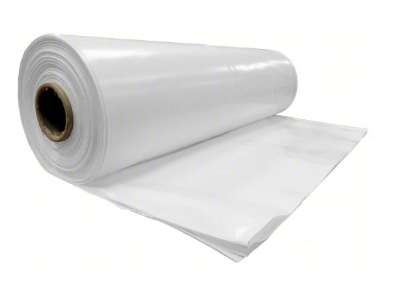
The Pros and Cons of Installing a Moisture Barrier in a Basement
A moisture barrier in a basement is an essential feature for many homeowners seeking to protect their property from water damage, mold growth, and general deterioration. Basements are particularly susceptible to moisture issues due to their location beneath ground level, where groundwater and humidity levels can be challenging to control. A moisture barrier can be a useful tool in safeguarding the space and preventing long-term damage. However, like any home improvement solution, it has both advantages and drawbacks. In this article, we will explore the pros and cons of installing a moisture barrier in a basement.
Pros of a Moisture Barrier in a Basement
1. Prevents Mold and Mildew Growth
Moisture is a key factor in the growth of mold and mildew, which can spread rapidly in a damp basement. These fungi thrive in humid environments and can cause serious health issues, including respiratory problems and allergies. Installing a moisture barrier significantly reduces the amount of moisture that enters the basement, creating a dry environment that discourages the growth of mold and mildew.
2. Protects the Structural Integrity of the Home
Excess moisture in the basement can lead to significant damage to the foundation and structural elements of the house. Over time, water can seep into the walls, floors, and even the foundation, leading to cracks, weakening, or even shifting of the structure. A moisture barrier acts as a protective shield, preventing water from entering the basement and preserving the structural integrity of the home.
3. Increases Energy Efficiency
Basements that experience excess moisture can become colder in the winter, which can cause drafts and increase heating costs. By installing a moisture barrier, you reduce the cold, damp conditions in the basement, making the space warmer and more energy-efficient. This can lead to savings on heating costs, especially if the basement is part of your home’s living space or if it affects the overall temperature of your home.
4. Enhances the Usability of the Basement
For homeowners looking to finish or renovate their basement, a moisture barrier is essential. A dry basement is much easier to transform into a livable space like a recreation room, office, or guest suite. Without a moisture barrier, the risk of water damage, mold, and unpleasant odors would make the space unusable or unsafe. A moisture barrier makes it possible to enjoy the basement as additional functional living space.
5. Improves Indoor Air Quality
In addition to mold and mildew, excess moisture can lead to a damp, musty smell that can permeate the entire home. This is not only unpleasant but can also affect the air quality of the entire house. A moisture barrier helps keep moisture levels in check, reducing the likelihood of these odors and improving the overall indoor air quality.
Cons of a Moisture Barrier in a Basement
1. High Initial Installation Costs
One of the most significant drawbacks of installing a moisture barrier in a basement is the cost. Depending on the type of barrier you choose—whether it’s a plastic vapor barrier, a liquid-applied membrane, or a more advanced system like a drainage mat—the cost can be considerable. Professional installation can also add to the expense. For homeowners on a budget, this upfront cost may be prohibitive.
2. Potential for Trapping Moisture
While a moisture barrier is designed to prevent water from entering the basement, it can also have the unintended consequence of trapping moisture that is already inside. If there is existing moisture within the walls or foundation, the barrier may prevent it from escaping, which could lead to other problems, such as rot or mold formation behind the barrier. It’s essential to address any pre-existing moisture issues before installing a barrier.
3. Limited Effectiveness in Severe Water Problems
If your basement experiences major flooding or high levels of groundwater, a moisture barrier alone may not be sufficient to protect the space. In such cases, you may need to invest in additional measures, such as a sump pump system, drainage systems, or professional waterproofing services. A moisture barrier can help with minor moisture issues, but it might not be the best solution in areas prone to significant water intrusion.
4. Maintenance and Inspection Requirements
Like any home improvement feature, moisture barriers require regular inspection and maintenance to remain effective. If the barrier develops tears, cracks, or other damage, moisture can seep through, making the installation ineffective. You’ll need to regularly check the condition of the barrier to ensure that it continues to provide protection, which could add to your long-term maintenance responsibilities.
5. Can Alter Basement Aesthetics
Depending on the type of moisture barrier used, it could impact the appearance of your basement. Some moisture barriers are installed behind the walls or floor coverings, while others may require visible changes. For example, the installation of a vapor barrier or drainage mat might make the basement look less appealing if not properly covered or incorporated into the design.
Conclusion
A moisture barrier in a basement can provide significant benefits, including protecting against mold, mildew, and water damage, improving energy efficiency, and making the space more usable. However, there are also considerations to keep in mind, such as the initial cost, potential for trapping moisture, and the need for regular maintenance. Ultimately, the decision to install a moisture barrier will depend on the specific conditions of your basement, your budget, and the extent of moisture issues you’re facing.
If you are uncertain about whether a moisture barrier is the right solution for your basement, consulting a professional waterproofing contractor can help you evaluate your options and determine the best course of action for your home.
Cedar Hill St. Louis Jefferson County Olivette Kirkwood Ballwin Arnold Franklin County St Charles County Fenton High Ridge Dittmer Creve Coeur
